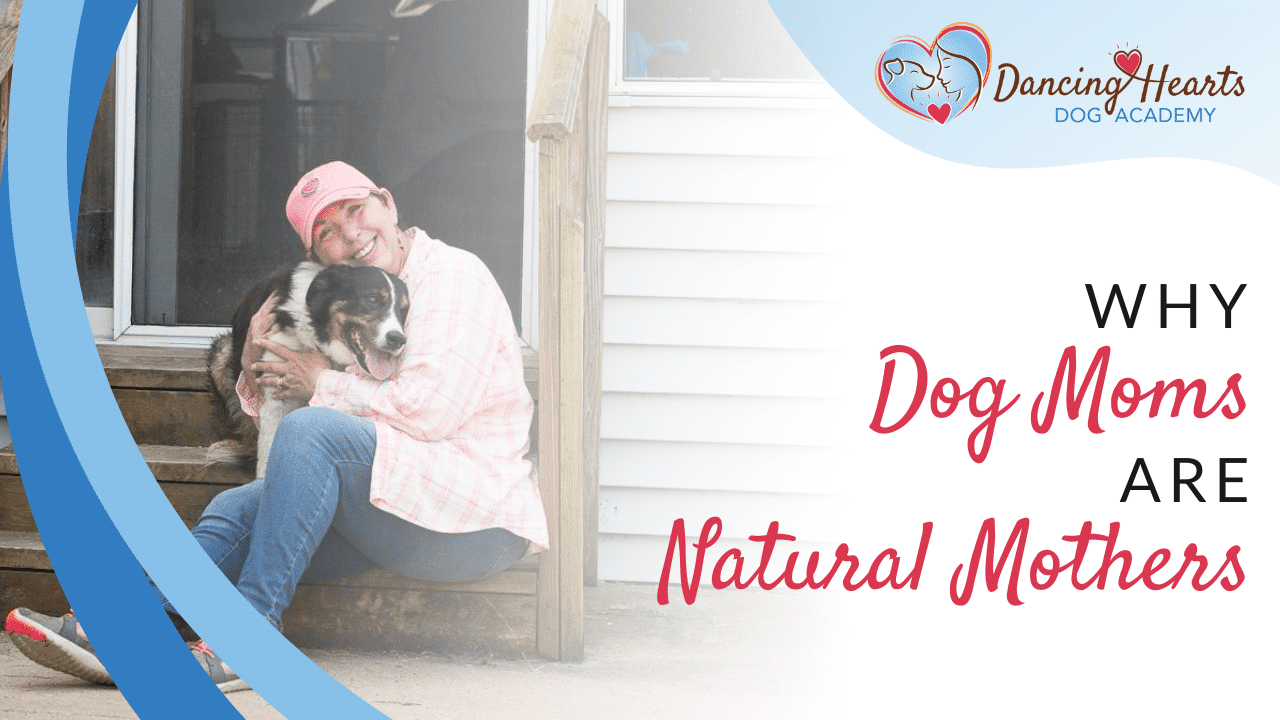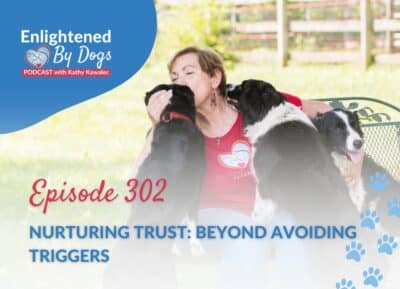In its purest form, unconditional love is not contingent upon your dog’s behavior. Yes, you might get frustrated or even angry when your dog misbehaves, but you don’t stop loving them because of it.
There’s a reason why I call myself and you guys ‘dog moms’, it’s because you are, in a sense, your dog’s mom. When you love a dog, you love them like a mother. Their behavior does not influence that love. You love them no matter what they do. I believe that this is a core principle of being a woman and a mother, whether you’re a biological mother or not.
Loving our dog like a mother loves a child comes so naturally to us that we don’t have to think about it. We love our dogs unconditionally, regardless of how they behave or how many shoes they chew up.
However, when our dogs misbehave, we can let our emotions cloud our judgment and temporarily blind us from experiencing a deep level of love that we have for our dogs. So, how can we bounce out of that mindset and rediscover our love for our dogs in times of distress, frustration, or when our dogs are testing our last nerve?
That’s what I’m talking about in this post and I hope it helps you to develop a deeper understanding of what lies beneath our dog’s behavior, and how you can get back to loving and appreciating your dog.
“Do you need to be a biological mother to be a mother to another?”
The power of a mother’s love
As dog moms, we see ourselves as our dog’s parents or guardians. After all, it’s up to us to care for them, feed them, give them shelter and water, and make sure that they feel loved. Isn’t that what all mothers do?
Do you have to be someone’s biological mother to mother them? Do you need to identify as a woman to mother another?
Of course not. A quick Google search will reveal hundreds if not thousands of cases of cross-species mothering. I’ve even seen it myself with one of my Border Collies – she nursed a stray kitten whose mother had passed away. The kitten was too little and young to survive on its own and my incredible dog embraced her mothering instincts and looked after the little kitten as if it was one of her pups.
Cross-species mothering does not have any language barriers. Not being able to speak the same language has never stopped mothers from mothering and neither has gender identification. You do not have to be a woman to experience a mother’s love.
Mothering comes from within
The nurturing desire to love others and love our children comes from within. Mothers have instinctual qualities that help them to be there for their children, nurture them, protect them, guide them, trust them, and raise them.
Understanding these qualities can help us develop a deeper layer of understanding about what it means to walk through life in partnership with our dogs.
The unconditional love a mother has for a child is the same love that we, as dog moms, have for our dogs. We love them no matter what and those feelings are not contingent on the behavior of our dogs. Mothers don’t stop loving their children just because they drew a stick man with crayons on the wall. They don’t stop loving their children because they threw a temper tantrum in the middle of the grocery store. Sure, they might be a little mad at them, but the unconditional love doesn’t waver.
It’s that same type of unconditional love that we have for dogs. Whenever they pull on the leash, we might get frustrated in the moment, but we don’t take our love away from our dogs. At least, we try not to, which leads me to my next point.
Reward-based training can make our love conditional
Whilst reward-based training is definitely better than traditional and more aggressive forms of dog training, it still comes with a heap of problems.
If you really think about it, what is reward-based training?
Essentially, you’re telling your dog that you will give them a treat but only if they comply with your idea of what ‘good behavior’ looks like. When you do that, what is the message you’re sending your dog?
Unfortunately, you’re telling your dog that your love for them is conditional upon their behavior. They only get the treat and your affection if they obey you. You won’t tell them they’re a good dog until they comply. This message may not be intentional, but it’s what your dog picks up on every time you do reward-based training.
It’s like you’re saying, “I’ll love you, but only if you do what I want you to do.” This is not the type of relationship members of my Brilliant Partners Academy want to experience with their dogs. We want to form lasting bonds with our dogs. We want them to know they can trust us but we’re only human. Sometimes, we make mistakes and there are things like limiting beliefs, cultural conditioning and so on, that stands in the way of us having that connected experience with our dogs.
“Just because we have… a strong desire to love our dogs unconditionally, does that mean we always behave that way?”
How to embrace your motherly instincts
As humans, our behavior changes every day. One day we’re in a good mood and feel like we’re on top of the world and other days, we’re in a bad mood and we want to lock ourselves in the house to avoid other people. We have a range of emotions and experiences, just like our dogs.
Yet, whenever our dog pulls on the leash, or barks at another dog, we take it personally. We assume that our dog is acting out intentionally. We might even go as far as thinking our dogs don’t love us because they’re misbehaving.
So, what can we do to break free from this cycle of taking everything our dog does personally? What can you do to bring you back to the truth which is that you have everything you need within you to step into the mothering role to love your dog unconditionally?
There are many things you can do and things that we teach inside the Brilliant Partners Academy that will help you to reconnect with your dog. This includes practicing deep breathing, gratitude, advocating, finding rebalance, radiating love, asking your dog for help and so on.
That feeling of unconditional love for your dog lives in you and it can be generated whenever you want to. Your love is not contingent on your dog’s behavior. I hope you truly believe that like I do because once you do, you’ll be able to step into that mothering role anytime that you want to.
How incredible and life-changing would that be?
If you’d like to work with me and learn how to create a partnership lifestyle for you and your dog, you can request an invitation to join us in the Brilliant Partners Academy when the doors open for the next enrolment!
You can listen to everything I talked about in this blog post over on my podcast – Enlightened By Dogs. It’s episode 119, which you can listen to here.






